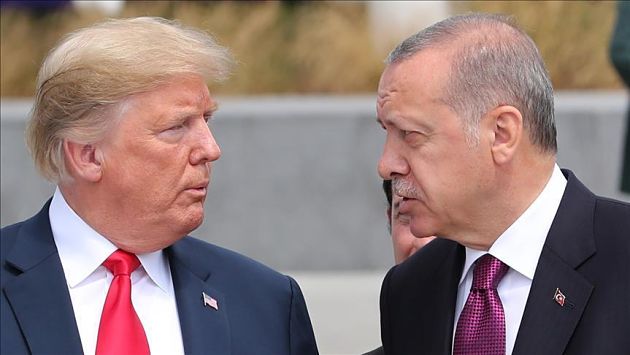Recently, there has been less reason for concern about the latest events around Manbij. First, the forces behind the regime have ceased their military and information provocations aimed at gaining control of the city, or creating the appearance of such control. Secondly, during his tour of the Middle East yesterday, a national security adviser to the US president, John Bolton, stated that the vacuum left by the withdrawal of American troops from northern Syria should be filled by Turkey, which would then be responsible for fighting ISIS and establishing dialogue with the Kurdish population. Ankara has repeatedly expressed its willingness to take on both tasks.
It should be noted, however, that in politics in general, and in the history of recent years in Syria, words without deeds mean little. Therefore, in our opinion, the risk of provocations by the regime and its foreign backers will continue until Turkish forces and their Syrian allies enter Manbij and other areas, establish firm control and raise their flags on the administrative buildings. However, while these forces are still in the planning stages of determining the fate of Manbij and other areas to be vacated by the Americans, their competitors have already begun to determine the fate of another disputed region, and not in their favor. We are referring to Idlib, where the group Hayat Tahrir al-Sham (HTS), formed after the rebranding of Jabhat al-Nusra — the Syrian branch of al-Qaeda that announced its break with it — captured a large part of its territory from the pro-Turkish group Nour al-Din al-Zenki last week (marked on the map below).
We are not at all surprised that there is a conflict between HTS and Turkish forces, which is politically inevitable in one form or another, despite the aspirations of sincere Muslims. What is surprising is that all these groups, which should have merged into a unified state structure long ago — the Syrian National Army (SNA) under the leadership of the Temporary Government of Syria, which Turkey should officially recognize by signing a treaty of protection and mutual assistance with it — still exist. From this point of view, the liquidation of all these groups and their incorporation into the SNA is a more important event than a change in the current territorial control of different factions.
This is because if the Turks eventually achieve their intended goals, the territorial gains made by their allies, along with the areas already under their control, such as during Operation Euphrates Shield and Olive Branch, will be incomparable to the remnants of Idlib, and more importantly, their status will be qualitatively different. At this stage, the conflict in Syria has reached a crossroads where two options for its resolution have emerged: the gradual return of all the country’s territories to the regime or its stable division between the regime and its allies (Russia and Iran) on the one hand and Turkey and its proxies from the SNA on the other, with the support of the United States.
Saudi Arabia and the UAE, judging by their sympathies, seem ready to accept both the first and the second option if the US insists on it. However, the decisive factor in the possibility of implementing the second option is undoubtedly Recep Tayyip Erdogan. In this context, discussions about abstract Syrian rebels at this stage are just as meaningless as discussions about conflicts between them. There are no abstract rebels or their unified project called the «Syrian Revolution,» which is long dead. There are two projects — effectively Al-Qaeda’s and effectively Erdogan’s.
The former aims at war with the regime, Russia and Iran, while the latter is trying to reach an agreement with them on the division of Syria, at least if we judge by his statements and actions. Consequently, for some time now, the forces of each of these projects have been fighting for them and not for an abstract «Syrian revolution», which is a rhetorical banner for both sides. The only thing that inevitably causes concern in this regard is the possibility of new casualties if Erdogan reaches an agreement with Putin on the division of Syria, with his proxies leaving Idlib and joining the SNA, and a large-scale offensive against the remaining regime, Russia and Iran begins. This scenario would be a consequence of HTS maintaining its presence in Idlib and being effectively consolidated by this group.
One can only hope that by then Turkey and pro-Turkish forces will control enough territory in northern Syria so that all peaceful residents of Idlib who wish to do so can be evacuated before the battle for the city begins.

